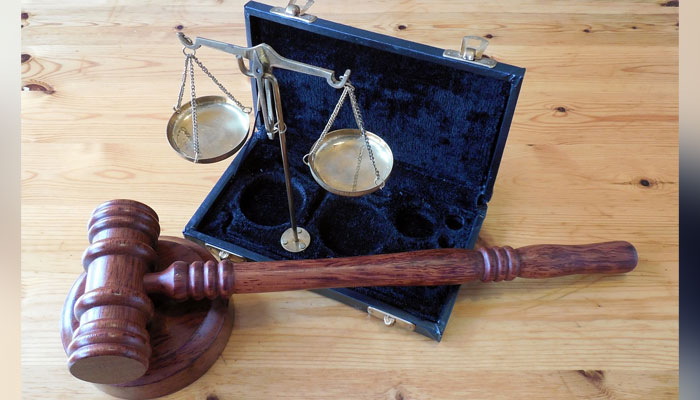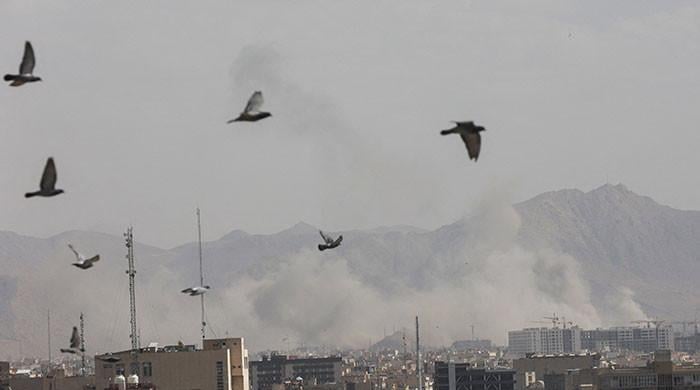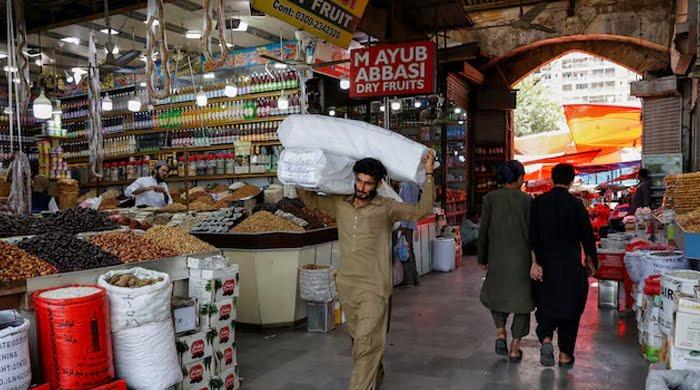'Productive' and 'unproductive' corruption
I'm not saying no Pakistani official has ever done anything as crass as Phone Fellow, but it hasn’t come to my attention if they have
June 22, 2023

Economists who specialise in contexts where corruption is obviously widespread, as opposed to well concealed but still widespread, like to talk about the difference between "productive" and "unproductive" corruption.
The first is corrupt and probably not morally defensible, but it results in economic growth. Skimming off the top of an infrastructure project that results in faster and more reliable internet connectivity would be an example of "productive" corruption. It's bad, but everyone benefits.
The second is also corrupt but is profoundly damaging to society. The recent news out of India that an official in Chhatisgarh state had drained more than 4 million litres of water from the Paraklot reservoir to recover his dropped phone is one of those shake-your-head moments of despair. This level of abuse of authority isn't just about the millions of litres of wasted water in a country that is seriously water stressed. It undermines every other state official trying to do their job.
When an official pockets some bit of money discretely, I disapprove and would certainly support prosecuting them. If they have generally done their job and never obstructed others from progressing with their ambitions, then the punishment should be proportionate and their service should be taken into account.
This outrageous individual who compromised the water security of a region to find a luxury item, however, should not get his service taken into account. The damage he has done to the credibility of every state official is immeasurable. The fact that this news went globally viral only compounds the reputational damage to every Indian state official diligently trying to do their jobs in the face of bullies and thugs who think their shiny toys are more important than people's access to water.
I have certainly heard about corruption over the 41 years that I have been coming and going to Pakistan, but I'm not sure I've ever heard of abuse as callous and capricious as this. The people that I have worked with, from the highest to the lowest levels of society, seem to all grasp the priorities of life and livelihood first, and luxuries somewhere down the list.
Of course, I'm not saying no Pakistani official has ever done anything as crass as this Phone Fellow, but it hasn't come to my attention if they have. So does this mean that Pakistan's corruption is more "productive" on average than that of the neighbours across the border? Well, almost certainly not, sadly. But perhaps being a smaller country it is more apparent to everyone how critical the necessities of life are to all. Or perhaps it's the dominance of Islam — a faith that emerged from the desert. Water hasn't been abundant in the Middle East for some time, so there is something unique about the cultural and symbolic value of water. I can't recall how often I've been told that one human must never deprive another human of water — I've been told that God will not forgive those who withhold water from a thirsty person.
For anyone who thinks I'm exaggerating the damage from this incident, I will remind them that there are parts of South Asia that must bring lorry loads of water at some times of the year just to survive. Effective water management for the entire population is not a "nicety" that we should get after other things, it is a basic need that we shouldn't even need to ask for. To have it so blatantly and thoughtlessly flaunted over a phone is not only baffling, it is infuriating.
If tomorrow I learn of a Pakistani official who has done something similar, my disappointment will know no bounds. I think I would find it heartbreaking to think that any Pakistani official would care so little about people's access to water that he would rather waste millions of litres of the stuff just to get back his toys.
Disclaimer: The viewpoints expressed in this piece are the writer's own and don't necessarily reflect Geo.tv's editorial policy.











